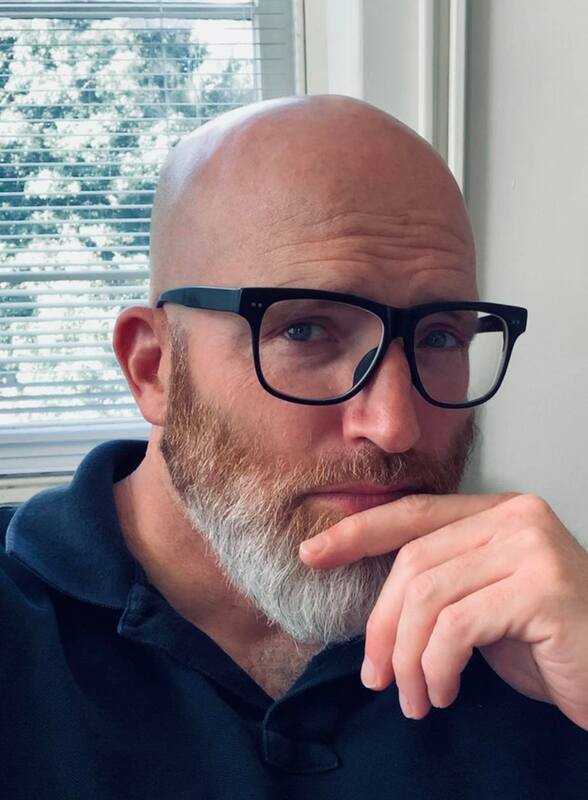ASSAY: A JOURNAL OF NONFICTION STUDIES
6.1
6.1
Spring comes late in Indiana. March drags into April, and for weeks and weeks everything is awful. The sky is gray and cloudy. The fields are endless and muddy, and you know that somewhere out there a flash flood has surprised a young possum and drowned it. Then, a few pussy willow buds sneak out and finally a day arrives when you wear a jacket to school but can carry it home. That's the day the sky lifts and finally, life seems worth living again. Ned Stuckey-French was such an important scholar of the American essay, such a generous mentor to his students and peers and tireless champion of their writing, one might forget he wrote essays of his own. Unless you happened to read one. The essay of his I remember and love best is “Meeting Bobby Kennedy,” which recounts a moment’s conversation high school senior Ned had with the presidential candidate on a noisy, windy airfield in West Lafayette, Indiana during RFK’s campaign stop in the late spring of 1968. (Ned had been canvassing for the senator all spring). That moment is the essay’s beating heart, but Ned’s descriptions nest it carefully in the Indiana landscape, the political and cultural landscape of the country at the end of the tumultuous 60s, the shifting topographies of Ned’s own personal and family lives. So this is not a typical historical account, but, in the words of another great 60s chronicler Joan Didion, “how it felt ” to the writer. And no one else there could have recorded the moment as Ned has; he was the sort of writer Henry James had in mind, “on whom nothing is lost.” Not the spring rain, the tension in his own father’s neck, Bobby Kennedy’s boyish freckles. He brings you that close to the man, remarking on New York senator’s strange combination of “vulnerability and power.” We share in the encounter.
I often wonder what America under President RFK might have been like— I’m perhaps more nostalgic for that lost future than for his older brother’s Camelot. The Bobby who shook Ned’s hand was not JFK’s aggressive young Attorney General, after all, but a man entering his life’s second act: vulnerable, as Ned writes, a student of sorrow and of Aeschylus, woke to poverty and racism and the dangers of militarism and to what he called in a later speech “the violence of institutions”: neglect and decay. Alas, as F Scott Fitzgerald reminds us, American lives are rarely afforded second acts. Like so many of his generation courageous enough to testify, to tell us to truth about ourselves, RFK was gunned down. Re-reading Ned’s essay, I couldn’t help but think of Bobby’s close encounter with Sirhan Sirhan in that LA hotel, Bobby’s ultimate vulnerability in that awful moment. Ned handles it masterfully, without a shred of sentimentality: having reawakened our dormant hopes, stoking them over the course of the memoir, as though opening a screen door with his forearm to let the reader in, he lets the door snap back against its frame. Crack. Inevitable as the gunshots. Pain, wisdom, drop by drop, against our will, the grace of God. Ned writes that in high school he was the straightest of arrows. That’s certainly the man I knew and loved. His arrow still as straight. Re-reading this memoir made me miss him powerfully— his intelligence, his compassion, his integrity. It’s not that people die, I heard somewhere recently, but that they stay dead. Yet he is so alive in his writing. On the tarmac that afternoon, Ned fell short of telling Bobby Kennedy that he himself was headed to Harvard in the fall of ‘68 and harbored his own presidential hopes. I guess I mourn that, too—The United States of Ned. I’d have lived proudly in that republic. |
Continue Reading...
|
|
|
Bob Cowser, Jr.'s most recent book Green Fields: Crime, Punishment, and a Boyhood Between won "Best Memoir" from the Adirondack Center for Writers, and an excerpt was cited in the Best American Essays 2012. His first book, Dream Season, was a New York Times Book Review "Editor's Choice" and "Paperback Row" selection and was listed among the Chronicle of Higher Education's best-ever college sports books. Cowser is also the author of Scorekeeping, a collection of coming-of-age essays, and editor of Why We're Here: New York Essayists on Living Upstate, and his work has appeared widely in American literary magazines. He is Professor of English at St. Lawrence University, where he teaches courses in nonfiction writing and American literature and was named the 2012 Owen D. Young Outstanding Faculty Member. He has taught abroad in France, England, and Denmark, and in state and federal prisons.
|

